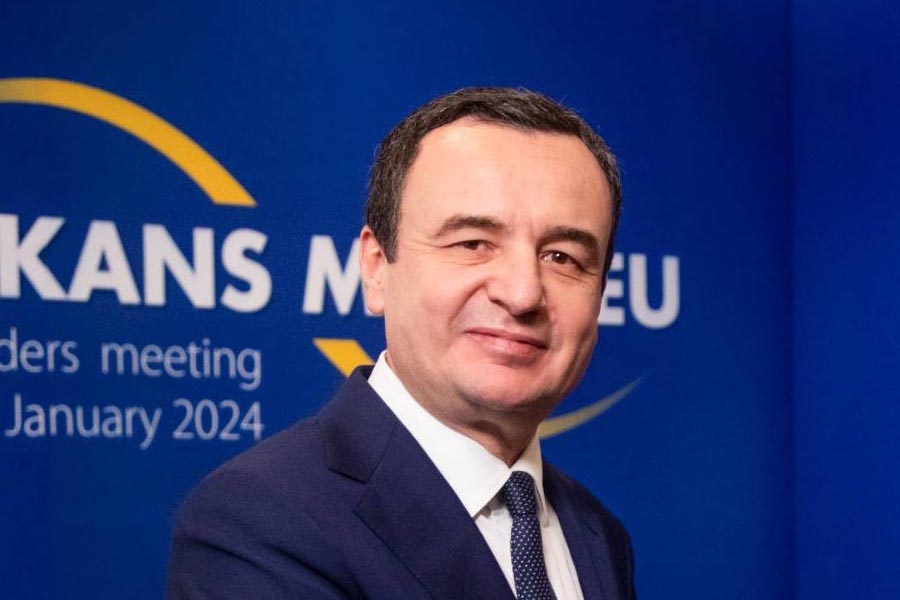The abolition of Serbian currency in Kosovo, not long after the decision of the Serbian government to recognize Kosovo license plates, is a significant trump card of Kurti in the race for a new prime ministers term. Given the upcoming campaign, it is difficult to expect that the Pristina prime minister
According to Demostats analyses, the turning point in Belgrade-Pristina relations was the armed conflict in Banjska. Official Belgrade, months before such an escalation of tensions, was in a better position than Pristinas representatives at the negotiating table in Brussels, as evidenced by the public praise of EU and US officials for the President Aleksandar Vucic.
According to the information we have obtained, Kurti, in fact, “rushed the decision to abolish the Serbian currency”, which surprised the West as well, and this “haste” is largely conditioned by preparations for the election campaign. The West does not ask Pristina to annul such a regulation, but only to delay its implementation

The abolition of Serbian currency in Kosovo, not long after the decision of the Serbian government to recognize Kosovo license plates, is a significant trump card of Kurti in the race for a new prime ministers term. Given the upcoming campaign, it is difficult to expect that the Pristina prime minister
According to Demostats analyses, the turning point in Belgrade-Pristina relations was the armed conflict in Banjska. Official Belgrade, months before such an escalation of tensions, was in a better position than Pristinas representatives at the negotiating table in Brussels, as evidenced by the public praise of EU and US officials for the President Aleksandar Vucic.
According to the information we have obtained, Kurti, in fact, “rushed the decision to abolish the Serbian currency”, which surprised the West as well, and this “haste” is largely conditioned by preparations for the election campaign. The West does not ask Pristina to annul such a regulation, but only to delay its implementation

Pristinas decision to abolish the dinar as the currency in Kosovo is an excellent prelude to Albin Kurtis upcoming election campaign. With such a move, the prime minister continues to present himself to the public as a politician establishing Kosovos independence, even at the cost of another confrontation with the West, including the United States.
The abolition of Serbian currency in Kosovo, not long after the decision of the Serbian government to recognize Kosovo license plates, is a significant trump card of Kurti in the race for a new prime ministers term. As an overture to the self-determination campaign, Pristinas various repressive actions against Serbs, including incursions by the Kosovo police, also serve. For the sake of illustration, Kosovo interior minister Dzeljalj Svechlja confirmed that three municipalities in Pec, Istok and Klina, which operated in parallel in the Serbian system, were closed on Friday, while the director of the Office for Kosovo and Metohija of the Government of Serbia, Petar Petkovic, said that the presidents of temporary bodies in these municipalities were detained for information talks, and that health centers, ambulances, and pharmacies were closed. Petkovic called it “a continuation of ethnic cleansing of Serbs with KiM”.
Such and similar actions are a proven recipe in the election campaign, intended primarily for voters of self-determination. All this serves, above all, to show Kurti as consistent in the implementation of the nationalist political agenda, which is significant even if the poor result of his political option in the last local elections is taken into account.
Given the upcoming campaign, it is difficult to expect that the Pristina prime minister will finally implement the obligation to form the community of Serb municipalities. If this important condition agreed to in the First Brussels agreement more than a decade ago were implemented until the parliamentary elections in Kosovo, Kurtis position would be shaken in the hard core of Kosovo Albanian nationalist voters. That part of the public would, without any doubt, perceive the leader of Vetevendosje as someone who is lenient towards the Serb minority.
However, Kurtis calculations, that is, further prolonging the formation of the ZSO, could change the strong pressure of the West, before the European Union deals with the elections for the European Parliament in the spring, and before the start of the election campaign in America.
In the conditions of the upcoming election campaign, it seems more realistic than the establishment of the ZSO, according to which Kurti will allow the holding of a referendum, which would be the way for new local elections in the north of Kosovo.
According to Demostats analyses, the turning point in Belgrade-Pristina relations was the armed conflict in Banjska, which took place at the end of September last year, and ended with the death of an Albanian policeman and three Serbs. Official Belgrade, months before such an escalation of tensions, was in a better position than Pristinas representatives at the negotiating table in Brussels, as evidenced by the public praise of EU and US officials for the President Aleksandar Vucic. The Banjska case came just at a time when it appeared that Quint would use all diplomatic means to “pressure” Kurti to form the ZSO, i.e. implement the Franco-German agreement, including the Ohrid Annex, agreed at the beginning of 2023.
After the tragedy in Banjska, the Serbian authorities found themselves in an unenviable position towards the West. The clarification of the case became an additional item on the list of obligations of official Belgrade, while kurti wanted such a situation to further prolong the formation of the ZSO, even though some kind of autonomy for Serbs in Kosovo was foreseen by the Ahtisaari plan, whose postulates are woven into the Kosovo Constitution. Item seven of the annexes from Ohrid is considered particularly important for the Serb community and reads:”the rights of the Serb minority in Kosovo should be protected in accordance with European practice, the right to an appropriate level of self-management for the Serb community, opportunities for direct support and ties of Kosovo Serbs with the Serbian government, as well as the protection of the Serbian Orthodox church”.
Although Serbian officials claim that they did not know that Pristina was preparing to abolish the dinar, according to unofficial knowledge of Demostat from diplomatic circles at technical negotiations in Brussels “there was talk about it”, but “Banjska” disrupted the order of moves. As our source explains, the Serbian side, led by Aleksandar Vucic, calculated that the community of Serb municipalities would first be formed, “which should have a dinar account and turnover”, which is in accordance with the mentioned item seven on “direct support”(assistance) of Serbia .
According to the information we have obtained, Kurti, in fact, “rushed with the decision to abolish the Serbian currency”, which surprised the West as well, and this “haste” is largely conditioned by preparations for the election campaign. In support of such a claim can be the statement of the State Department, regarding the decree of the Central Bank of Kosovo that only the euro can be used as currency for cash payments, that Kosovo should “postpone” the implementation of this decision until “appropriate procedures in accordance with European standards” are established.
In a similar vein, the European Union has asked Pristina for a “long enough transition to abolish the dinar”. As it is pointed out, the EU “recognizes that the regulation aims to improve the transparency of financial flows, to ensure financial stability and the fight against money laundering and counterfeiting, but the regulation can also affect the financial support Serbs in Kosovo receive from Serbia”. Therefore, the West does not ask Kosovo to annul the decision on the dinar, but only to postpone it.
The Kosovo government said that the implementation of the decree on cash operations “will take place through an easy transition”, while the Serbian president said that Serbia would ask for an emergency session of the Security Council on Kosovo and Metohija on Monday, and called Pristinas decision to abolish the dinar “criminal”.
In all societies there are issues that are rather being skipped. Certain...
The neoliberal path, started in 2001, has led to especially bad results in Serbi...
For centuries, the region was subsumed within the Ottoman and Hungarian Empires,...
"Serbia has returned to the systemic and anti-systemic position of the political...
In reality, Serbia is closer than ever to NATO. In the course of the last five y...